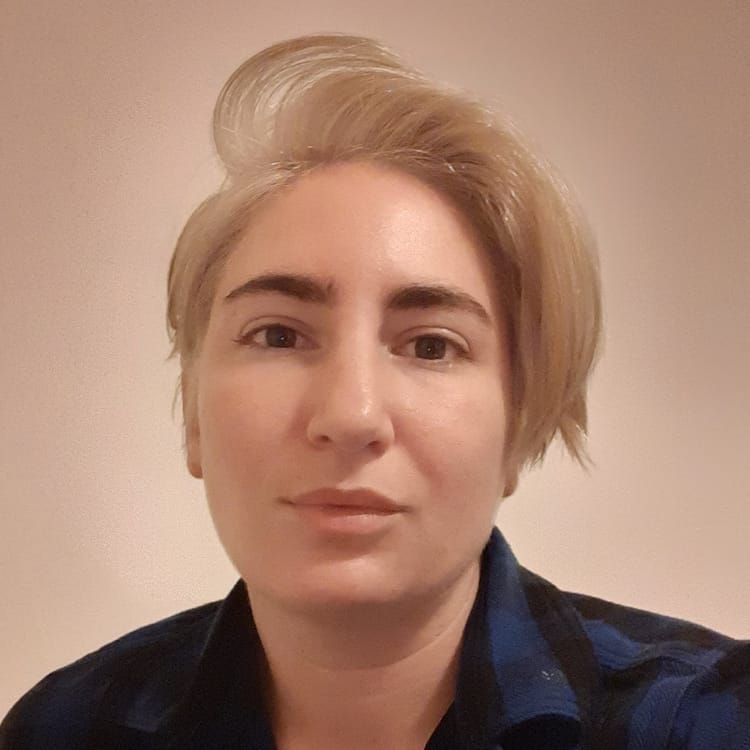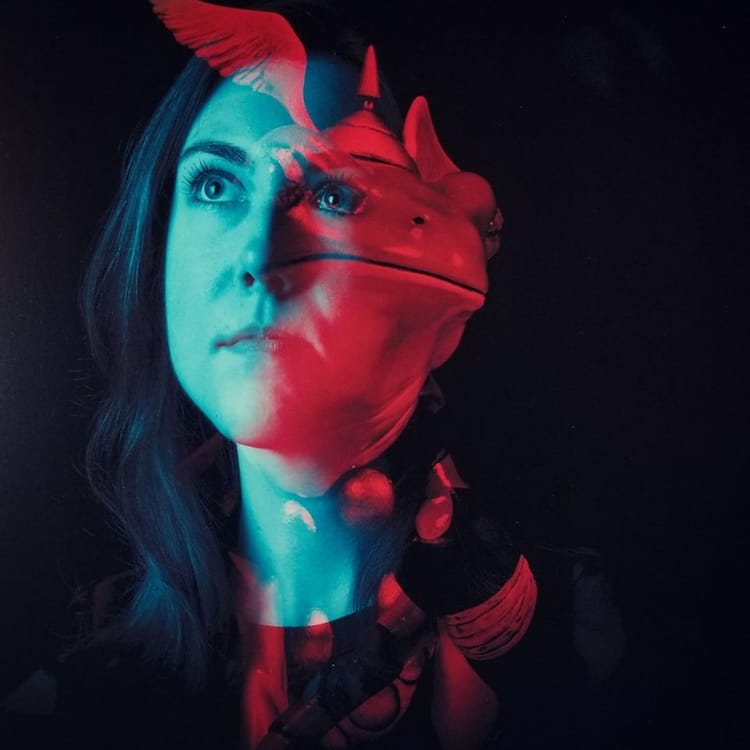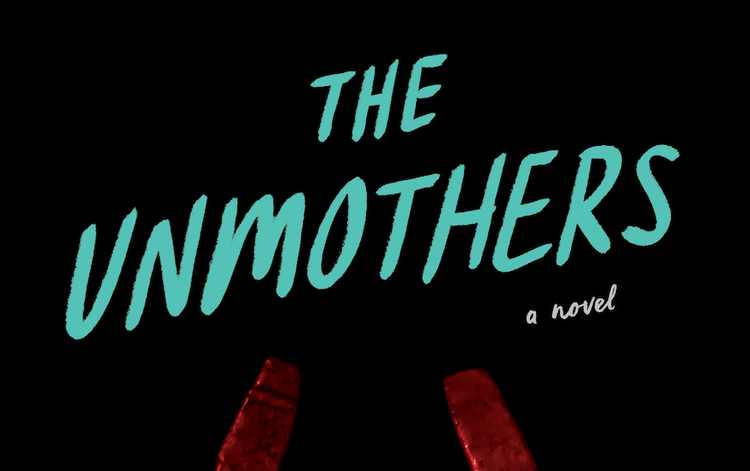The Curse of Being an Unreliable Narrator
S. A. Barnes works in a high school library by day, recommending reads, talking with students, and removing the occasional forgotten cheese-stick-as-bookmark. The author has published numerous novels across different genres. Barnes lives in Illinois with more dogs and books than is advisable and a very patient spouse.
I remember clearly the first time someone else referred to Claire Kovalik, the main character in Dead Silence, as an unreliable narrator. My emotional response took me aback—first, surprise and then a sudden surge of defensiveness.
She’s doing the best she can, I wanted to say. I mean, come on, she’s locked up in what amounts to a mental institution at the start of the story, after a head injury and a traumatic incident that she doesn’t quite remember involving her crew and a mysterious ghost ship. What do you want from her???
The funny thing is, the statement wasn’t meant as a critique, not at all. It was simply a fact—Claire Kovalik is an unreliable narrator. Of course she is. She must be, for all the reasons listed above and more. And I’d done those things very intentionally, so why the strange and powerful reaction?
It took me a bit to step back from that moment and deconstruct what was going on in my mind.
As writers, we put pieces of ourselves in every character. When my mom reads my books, she will sometimes say, “I could hear you in it.” A combination of particular phrases, a specific sense of humor, or even just—I hope—a unique perspective.
But apparently pieces of me sometimes make it in there without my realizing it.
If Claire is an unreliable narrator—and she is—then she gets that from me. I am an unreliable narrator in my own life.
Maybe we all are to an extent, who knows. It’s the nature of reality that everyone’s experience is a little different, right? But in particular, I know my reality doesn’t always match up to the agreed-upon definition.
I distinctly recall sitting in a doctor’s office trying to explain how I was fairly certain that one of the bones in my left wrist was getting bigger (a sign of bone cancer—and it wasn’t, by the way.)
Another time, I drove myself to my doctor’s for an emergency appointment, which included my first EKG, because I couldn’t seem to catch my breath. (I was in my late twenties, with no existing medical conditions that would make a heart attack likely.)
Or, how about the time that I was so panicked about possible muscle spasms in my fingers and toes that I nearly got into a car accident, trying to watch my fingers twitching? (At that time, my fear was Early Onset Parkinson’s.)
Now, it’s easy for me to look back and see anxiety raging out of control. Unchecked anxiety creates symptoms, like chest tightness and muscles spasms. Unchecked anxiety with an obsessive focus on illnesses leads to a whole hell of a lot WebMD searching and sleepless nights.
My official diagnosis is Generalized Anxiety Disorder with a big ol’ side of OCD. (Actually, it’s now called something like Illness Anxiety Disorder.)
It took years for me to get help because I was convinced I could just “stop worrying,” like many well-intentioned people kept telling me to do. It felt like a personal weakness to be unable to control my thoughts/fears even when—or especially when—I knew they were completely over the top.
The problem was my reality was malleable. I couldn’t trust my own perception of my symptoms or even what my body was telling me. When a professional would tell me everything was fine, the huge relief that I felt in that moment was almost enough to make me cry. But that relief would evaporate almost instantaneously with the introduction of a new symptom or the fear that they’d missed something, and I really did have [insert terrifying disease here].
I’m sure I frustrated many medical professionals because I didn’t know how to communicate what was really going on. I didn’t have the vocabulary or the understanding of anxiety and how it works for me (every person with anxiety is different).
I was—still am, to an extent—an unreliable narrator. I did not want to be. I tried so hard to regulate myself out of being THAT person, the one wasting doctors’ time and resources, the one being tagged as an attention seeker, the one who “should have a real problem” to stop worrying about made-up ones.
So, after some time to ponder it, I finally figured out that my defensive reaction to Claire being dubbed as unreliable came from that experience, came from that time in my life when I was also deemed “unreliable.”
Because, as it turns out, I also carried the misconception that an unreliable narrator was generally a character who was deliberately lying or hiding something for their benefit. That’s not true, of course. A character can be an unreliable narrator for any number of reasons, including just being human with all the incumbent flaws and misperceptions.
Years later, even though therapy and medication have helped immensely, I guess I’m still dealing with the aftereffects of living with untreated anxiety for years. Enough to create a character that echoes my experience unintentionally, apparently.
The funny thing is now that I understand and accept how my mind works, I’m very comfortable and upfront about it with people. The first thing I tell any medical professional is, “Hey, I have anxiety and it flares up around any kind of medical situation. So I’m not always the best at accurately conveying symptoms or their severity. But this is where I’m at and here’s what’s going on.”
And I choose to speak frequently and publicly about having anxiety and the dual miracles of therapy and medication because a) it gave me my life back and b) I hope that someone else might hear/read about it and decide to seek help faster than I did.
As for Claire, now that I’ve had time to consider it, I love that she’s an unintentional reflection of me in some of my worst moments. It reminds me that even as I continue to work to manage my anxiety with all that I’ve learned, I should be kinder to my messy, unreliable past self who was doing the best she could at the time.
Claire Kovalik is days away from being unemployed--made obsolete--when her beacon repair crew picks up a strange distress signal. With nothing to lose and no desire to return to Earth, Claire and her team decide to investigate.
What they find is shocking: the Aurora, a famous luxury spaceliner that vanished on its maiden tour of the solar system more than twenty years ago. A salvage claim like this could set Claire and her crew up for life. But a quick search of the ship reveals something isn't right.
Whispers in the dark. Flickers of movement. Messages scrawled in blood. Claire must fight to hold on to her sanity and find out what really happened on the Aurora before she and her crew meet the same ghastly fate.
Add DEAD SILENCE to your tbr here. Order it from your local independent bookseller, or order it via Bookshop.org to support independent booksellers throughout the US and the UK. For international shipping, you can try Barnes & Noble. If you prefer audiobooks, here’s a Libro.fm link. You can also request DEAD SILENCE from your local library — here’s how to get in touch with them. And if you need to order from the Bad River Website, here’s a link that will leverage your order for good.
In the meantime, care for yourself and the people around you. Believe that the world can be better than it is now. Never give up.
—Gailey






Member discussion